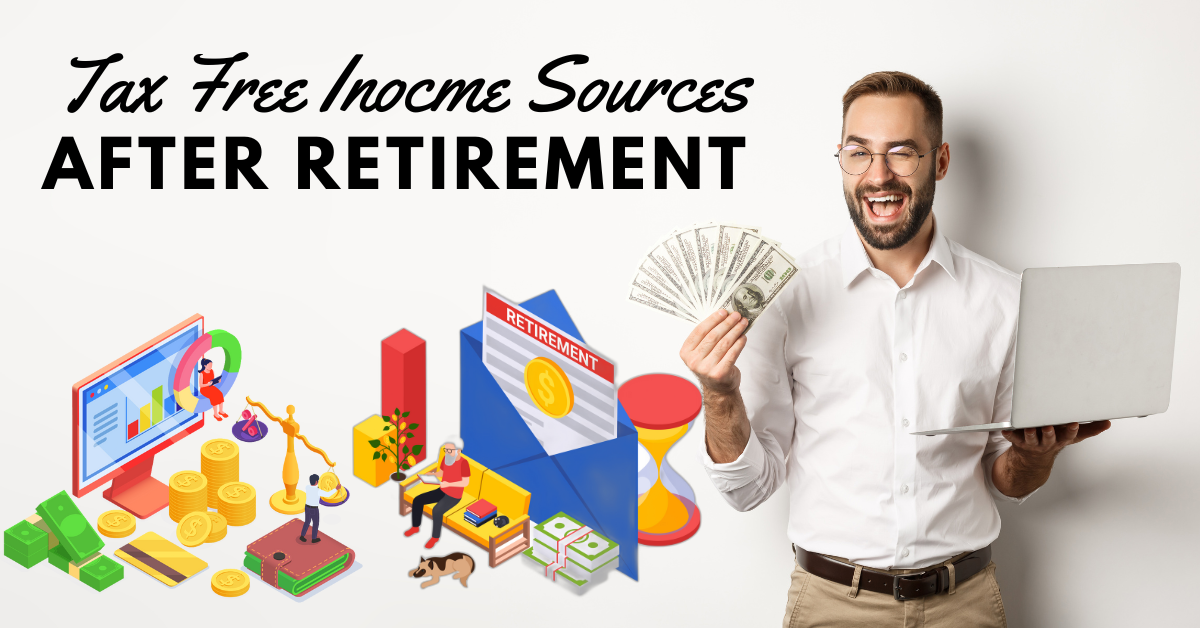
Abundant Tax-Free Income Sources After Retirement
Table of Contents
ToggleIntroduction:
Retirement is a time to enjoy the fruits of your labor, to travel, spend quality time with family, and pursue hobbies. However, it can also be a time when managing your finances becomes crucial. One key aspect of post-retirement financial planning is to maximize tax efficiency. In this blog, we’ll explore some of tax-free income sources after retirement that can help you make the most of your golden years.
1. Roth IRA Distributions:
A Roth Individual Retirement Account (IRA) is a powerful tool for tax-free income in retirement. Unlike traditional IRAs or 401(k)s, Roth IRAs are funded with after-tax dollars, meaning you’ve already paid taxes on the contributions. This allows your investments to grow tax-free over time. The real benefit comes during retirement when you can withdraw both contributions and earnings tax-free as long as you meet certain criteria, such as being at least 59½ years old and having had the account for at least five years.
2. Municipal Bonds:
Investing in municipal bonds can provide tax-free interest income. These bonds are issued by state and local governments and are generally exempt from federal income tax. Depending on your place of residence, they may also be exempt from state and local income taxes. Keep in mind that the interest rates on municipal bonds may be lower compared to other investments, but the tax advantages can make them an attractive option for risk-averse retirees.
3. Health Savings Account (HSA):
A Health Savings Account (HSA) is primarily designed to help with medical expenses, but it can also serve as a unique retirement savings vehicle. Contributions to an HSA are tax-deductible, and if you use the funds for qualified medical expenses, they remain tax-free. However, after age 65, you can withdraw money from your HSA for non-medical expenses without penalty, although you will be subject to income tax on the withdrawals. This can provide a tax-efficient way to cover non-medical expenses in retirement.
4. Social Security Benefits:
Social Security benefits are a significant source of income for many retirees. While the taxation of Social Security benefits depends on your overall income, up to 85% of your Social Security benefits can be tax-free. Careful planning, such as managing other sources of income like IRAs or 401(k)s, can help minimize the tax impact on your Social Security benefits.

5. Reverse Mortgage:
A reverse mortgage is a loan that allows homeowners aged 62 or older to convert a portion of their home’s equity into tax-free income without selling the home. The income received from a reverse mortgage is not considered taxable income because it’s essentially a loan, not income. However, it’s essential to carefully consider the implications and costs associated with reverse mortgages and consult with a financial advisor.
6. Life Insurance Cash Value:
If you have a life insurance policy with a cash value component, you can access the cash value tax-free through withdrawals or loans. Keep in mind that surrendering the policy could result in taxable income, so it’s essential to understand the implications of your specific policy and consult with a financial advisor before making any decisions.
7. Inheritances:
Inheritances can be a significant source of tax-free income after retirement. Generally, inheritances are not subject to income tax, so you can use these assets to supplement your retirement income without worrying about additional taxes. However, it’s essential to understand any potential estate tax implications and consult with a tax professional.
8. Some Social Security Payments:
Certain Social Security payments may be tax-free, depending on your overall income. If you have other sources of income that push you below specific income thresholds, you may not have to pay taxes on a portion of your Social Security benefits. Careful tax planning can help you maximize the tax-free nature of these payments.
Conclusion:
Maximizing tax-free income sources after retirement is a key aspect of securing a comfortable and financially stable retirement. By strategically utilizing Roth IRAs, municipal bonds, HSAs, Social Security benefits, reverse mortgages, life insurance cash value, inheritances, and understanding the tax implications of some Social Security payments, you can minimize your tax liability and make the most of your retirement savings. However, it’s crucial to consult with a financial advisor to tailor these strategies to your specific financial situation and goals. With careful planning, you can enjoy your retirement years with peace of mind and financial security.
Contact Us today for personalized retirement planning advice.

Alice Knox
Follow Us On


